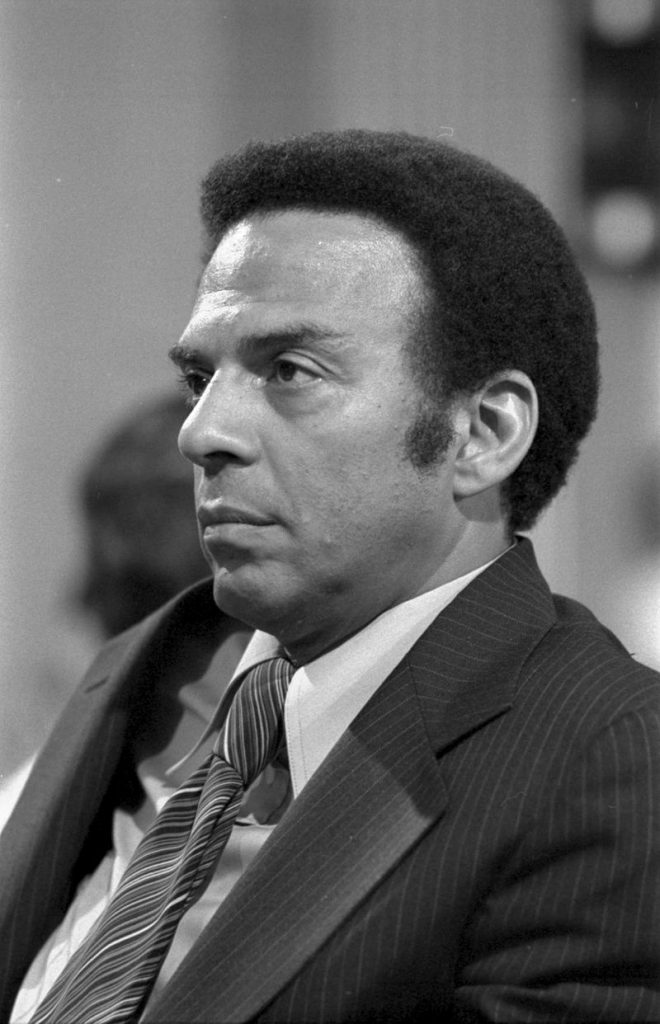On this Martin Luther King Jr. Day, I wanted to share with you some moving, firsthand recollections of Dr. King by one of those brash but courageous young preachers who worked with King to achieve civil rights for all Americans.
Andrew Young was, indeed, young when he joined Dr. King, and was with him the day he was assassinated in 1968 in Memphis.
Later Young became mayor of Atlanta, a U.S. Congressman from Georgia, and the United States ambassador to the United Nations.
“We were not great men, and there was nothing special about us. We were ordinary, 30ish-something preachers who got together, realized that race was a burden breaking down the fabric of our total society, and we decided to do something about it. Under the leadership of Martin Luther King, we developed a method borrowing form Gandhi in India.”

Speaking with me in the mid 1990s, Andrew Young was eager to share his friendship with Martin Luther King with the young leaders of today — including a dose of reality.
“I describe him as a great man but not a plastic saint, a man who really didn’t want to be a leader, who was afraid of going to jail in many ways.”
As Young tells it, Dr, King had grave doubts about whether he should travel to Birmingham Alabama in 1963, privately believing that Birmingham may be too tough for him:
“We had an organization then with less than ten people,. we had a budget of about $200,000 a year, and we were going to take on the citadel of segregation in the South. He was a reasonable man, he was an intelligent man. He had to doubt and question that.But he was willing to go, and fail. And he went to Birmingham, did everything he knew how to do, and then failed. As a matter of desperation he decided the only thing he could do, since there were hundreds of people in jail and he couldn’t get them out, was go to jail with them.
“When he went to jail with them, the preachers — mostly white preachers, all white preachers — wrote an ad in the paper condemning him for stirring up the trouble. And he wrote an answer, around the margins of the New York Times and on toilet tissue, and smuggled it out of the jail. It became ‘The Letter From the Birmingham Jail,’ which explained to the whole world what segregation was all about. And it created a moral outrage.
It was all part of a vision, but not a plan, Young says. There’s no way any of them, including Martin Luther King, could have planned what would happen in the 1960s.
“Martin Luther King’s dream was simply that men would be judged by the content of their character rather than the color of their skin, that the sons of former slaves and the sons of former slaveowners would one day sit down at the table of brotherhood.
“If you had told Martin Luther King after the speech at the March on Washington, what do you think of Andy Young being the ambassador to the United Nations? He’d have laughed, and he would’ve said, Well, if we can ever get the right to vote, maybe some of those things will happen.
“But we weren’t sure that we would get the right to vote in our lifetime.”
And let’s talk for a moment about death.
King laughed about it, Young says. King had a great sense of humor, and laughed more than anybody he’s ever been around. And managed to even turn his sufferings and his trials into sermons — and good jokes.
I asked him,”It did occur to me there would be some who might be on some level a little troubled to learn that you and he and your colleagues would actually make jokes about who might lose their life at some point.”
“Yeah, well., it was a way of dealing with death. Rather than fear death he mocked death. And he mocked death in our lives as a way of dealing with it in his own.
“He was a preacher, and he was in the tradition of the old, prophetic Baptist preachers like his father, and Vernon Johns, who had been his predecessor at the Dexter Avenue Church. And they were all known for being very capable of great sarcasm and wit. And he could turn on that sarcasm and wit and charm.
“He’d do preacher imitations, and sound like Eddie Murphy doing a preacher imitation of an old country preacher. It was fun! But at a time when people normally would have been cringing in fear, of the possibility of dying the next day, we were cracking up laughing.”